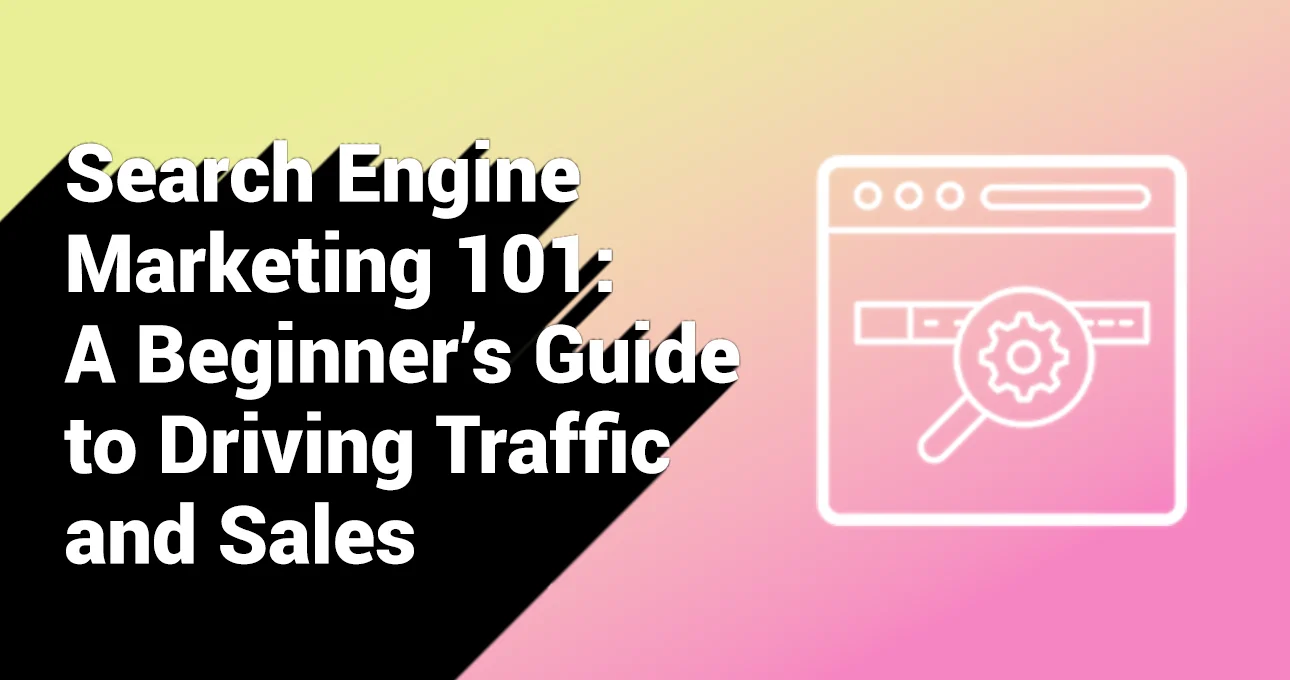Search Engine Marketing 101: A Beginner’s Guide to
Search Engine Marketing 101: A Beginner’s Guide to Driving Traffic and Sales
In today’s digital world, every business—large or small—must have a solid online presence to thrive. One of the most effective ways to increase visibility and drive sales is through Search Engine Marketing (SEM). But if you’re new to the world of SEM, it can feel overwhelming. Don’t worry! This guide will introduce you to the fundamentals of SEM and show you how it works, providing tips for beginners to help you get started on the right track.
What is Search Engine Marketing (SEM)?
Search Engine Marketing (SEM) refers to the process of gaining website traffic through paid advertisements that appear on search engine results pages (SERPs). Unlike organic search strategies (like SEO), SEM focuses on paid tactics to get your website noticed by users when they search for terms related to your products or services. These ads often appear at the top or bottom of search results, marked with the label “Ad” or “Sponsored.”
The two main components of SEM are:
- Paid Search Ads: These are the ads that appear on search engines like Google or Bing when users search for relevant keywords.
- Paid Search Campaigns: These are the strategic efforts behind placing, managing, and optimizing ads on search engines.
How Does SEM Work?
To run an effective SEM campaign, you need to understand a few key concepts:
- Keyword Research: The backbone of SEM is selecting the right keywords that are relevant to your business and search queries. For example, if you sell running shoes, you may target keywords like "best running shoes," "buy running shoes online," or "comfortable running shoes."
- Bidding and Budgeting: SEM operates on a bidding system. When someone searches for your chosen keywords, search engines auction off space for ads. You bid a certain amount you're willing to pay for each click on your ad (cost-per-click or CPC). Your budget determines how much you’re willing to spend each day.
- Ad Creation: You create ads that appear when your target keywords are searched. These ads consist of a headline, a brief description, and a URL leading to your landing page.
- Ad Rank and Quality Score: When your ad is displayed, Google and other search engines evaluate your bid amount and Quality Score. Your ad’s relevance, landing page quality, and expected click-through rate (CTR) affect this score. The higher your Quality Score, the lower your cost-per-click, leading to a better return on investment (ROI).
- Landing Pages: Once a user clicks on your ad, they are directed to a landing page. It’s essential that this page aligns with the ad’s promise, is easy to navigate, and has a clear call-to-action (CTA). A well-optimized landing page can significantly boost conversion rates.
Why Should Beginners Use SEM?
As a beginner, SEM can be highly effective in driving targeted traffic and sales quickly. Here’s why it’s beneficial:
- Immediate Results: Unlike SEO, which can take time to show results, SEM allows you to see instant traffic to your website as soon as your ads go live.
- Targeted Audience: SEM allows you to target specific demographics, locations, and devices, ensuring your ads reach the right audience.
- Measurable ROI: With SEM, you can track your spend, analyze your results, and adjust your campaigns accordingly. This makes it easier to determine the effectiveness of your efforts.
- Scalability: As you start seeing success, you can easily scale your SEM campaigns by increasing your budget and targeting more keywords to drive even more traffic.
Tips for SEM Beginners
As a beginner in SEM, here are some essential tips to help you get started:
- Focus on Relevant Keywords: Start by targeting long-tail keywords, which are specific phrases that have lower competition and higher conversion rates. These may be less expensive and more relevant to your target audience.
- Start Small: Don’t overspend in the beginning. Set a modest daily budget and scale it as you gain more confidence in your SEM campaigns.
- Use Ad Extensions: Google Ads offers features like site link extensions, call extensions, and location extensions to make your ads more prominent and useful. Use them to stand out.
- Optimize Your Landing Pages: Make sure your landing pages are user-friendly, fast, and relevant to the keywords you're targeting. This will increase the likelihood of conversions.
- Track and Analyze Performance: Use Google Ads’ reporting tools to track the performance of your ads. Keep an eye on your click-through rates (CTR), cost-per-click (CPC), and conversion rates to ensure your campaigns are successful.
- A/B Test Your Ads: Regularly test different ad copies, headlines, and calls to action (CTAs) to see what resonates best with your audience. A/B testing will help you refine your strategy for optimal results.
Final Thoughts
SEM is an essential tool for driving targeted traffic and increasing sales. By understanding the basics, setting up your first campaign, and continuously optimizing your efforts, you can see meaningful results even as a beginner. SEM is all about experimentation, so don’t be afraid to try different strategies and make adjustments based on the data.
Whether you’re looking to improve your website’s visibility or drive more conversions, SEM can be the key to success. Start small, keep learning, and soon you'll see how effective SEM can be for your business growth.


We are actively engaging with waste to energy operators, concrete manufacturers, and the wider construction industry.
Most innovative and successful builders and real estate enterprises in the country, has been selected for the design-build expansion of Airsides A and E at Tampa International Airport.